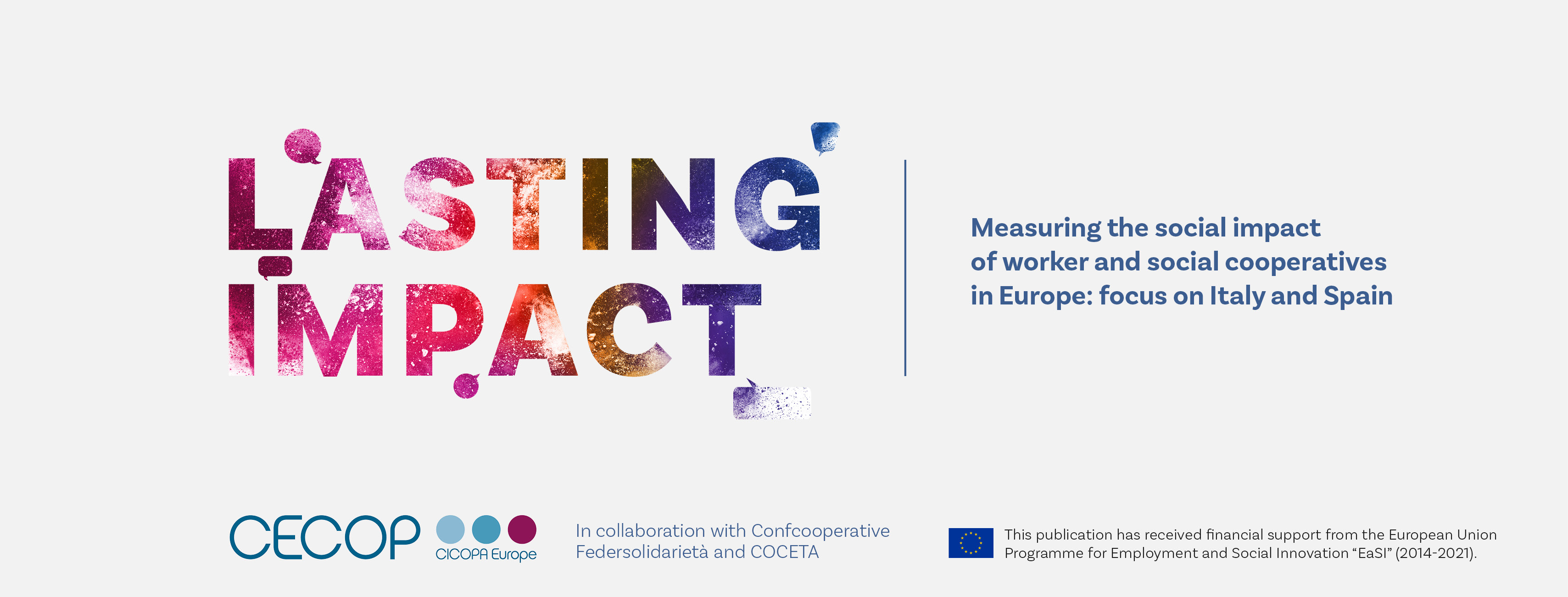
The social impact assessment topic started gaining greater attention in Europe a decade ago, following the European Commission Social Business Initiative aimed at providing better access to financing for actors in the social economy, the Action Plan for the implementation of the European Pillar of Social Rights, and the recent adoption of the Social Economy Action Plan. Cooperatives are playing a key role in the pursuit of the objectives set out in the Action Plan for the European Pillar of Social Rights with regards to quality employment, provision of quality services to the community and combatting poverty.
Cooperatives’ financial and business assessments nowadays follow consolidated and standardised practices. However, it is still difficult to find consolidated methods and instruments for the measurement of social changes, notably those brought about by worker cooperatives and social cooperatives.
Indeed, when talking about cooperatives’ social impact assessment, the purpose goes beyond the finding of financial investors. Measuring their social impact helps cooperatives understand the continuous social changes in the context they are active in and helps ensure the continuity and effectiveness of their services.
Measuring the social impact of cooperatives is also vital to raise public visibility of the important role they play in answering the local and global needs of the transformative society they belong to.
CECOP’s latest publication, co-published with Italian member Confcooperative Federsolidarietà, and Spanish member COCETA, shows how cooperatives can promote economic, social, and environmental sustainability in their communities in an inclusive, democratic and collaborative way. It provides concrete, functional examples of social impact assessment tools that are already being used in Italy and Spain. The data emerging from the social audits of Spanish and Italian worker and social cooperatives demonstrates that they are major actors advancing decent work, sustainability, and social inclusion. In addition, the first chapter offers an overview of the social impact of cooperatives in Europe, based on data from a CECOP members’ survey conducted in 2021.
Their adaptability, and their commitment to answer the needs of the people and territories they belong to, makes cooperatives central in dealing with societal changes. The publication reaffirms that engaging with cooperatives will remain key on the way to the post-pandemic recovery, and vital for a sustainable and people-centred digital and green economic transition.
| Discover the publication here |
Addendum: In December 2022, the Polish version of this report was released.







 Employment & Social Inclusion
Employment & Social Inclusion  Sustainable Growth
Sustainable Growth 


